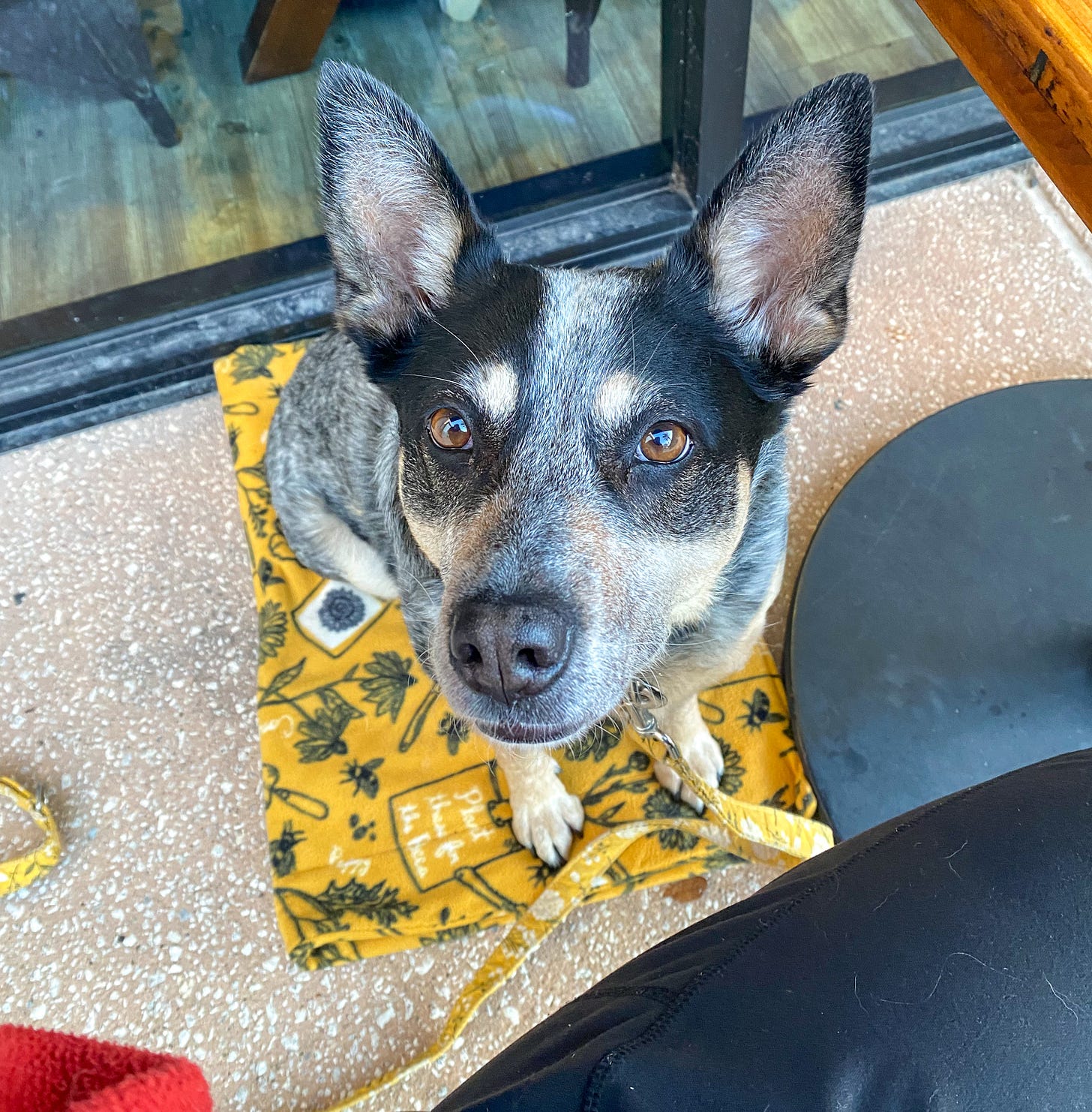"Anti human, pro dog"
I think of my past self vilifying strangers to retain a sense of moral high ground when all I actually stood upon was compounded harm.
Behind me at the coffee shop stands a man in a gray shirt with white letters. “Anti human,” reads the top line. “Pro dog,” completes the bottom.
I almost laugh. I want to be the type of invested dog person who can still chuckle at jokes meant to be benign; who friends don’t hesitate to send viral animal videos out of fear I’ll latch onto questionable body language; who is not, in short, a killjoy. It is a funny shirt if you take it in the right way, only a few steps removed from “tell your dog I say hi” (we saw that bumper sticker yesterday) and on par with “dogs welcome, people tolerated” (the doormat of pet stores and vet clinics across the country).
But this year more than any other I’ve committed to seeing the ties between human and animal welfare. You can’t be anti human and pro dog, not really, because domestic dogs evolved specifically to live with people. Their success is tied to ours at the grand scale (they live everywhere we do, their population has grown with ours) and at the minute (the better off a given pet owner, the better off their animals).
I was first exposed to this idea of “helping people helps pets” in Bronwen Dickey’s Pit Bull: The Battle Over an American Icon. Nearly three years after I read Dickey’s allusions to a broken rescue system, Carol Mithers more clearly sketched the landscape of saviorism in Rethinking Rescue. “Animals in shelters don’t necessarily belong to humans who didn’t love them, but to those who lacked resources, chiefly money,” she insists in the book’s introduction. “There’s a difference between protecting animals and blaming humans without resources for failing to care for them.”
When I read “anti human, pro dog” I think of well-intentioned but misguided rescue workers who tear beloved pets from people without housing. I think of shelter biographies that invent stories of abuse and neglect to make surrendered animals more adoptable. I think of my past self vilifying strangers to retain a sense of moral high ground when all I actually stood upon was compounded harm.
“Sis, it’s not that deep,” I imagine a Gen Z-er somewhere scoffing. Maybe it’s not. Maybe some of us are “anti human, pro dog” because we think puppies are better than people in a pure way. Certainly this was the intent of whoever designed the shirt in question—I doubt they were trying to say “humans are the cause of all worldly woes and do not deserve our support.” They just wanted to signal “I’d rather be around my dog than these strangers out in public.”
I relate to that particular sentiment. Left to my own devices, I do prefer the company of nonhuman animals over that of most people, and I don’t think there’s anything wrong with me. Humans (like domestic dogs!) have a remarkable ability to form bonds with different species. We’re also individuals with our own experiences. I regularly function through a haze of social anxiety, and connecting with living beings who aren’t people—and therefore can’t hold me to confusing and overwhelming and contradictory standards of modern human interaction—feels liberating.
But “I’m often more comfortable around animals” is not the same as “I am anti human.” I understand that people are necessary to care for this other dependent species I love—and I recognize that humans have inherent value of our own. I am a social member of a social species, and the sense of community that gets me through so many days (even when I feel it most intensely with Scout) would fundamentally not exist without human support.
“Anti human, pro dog.” It’s just a shirt. I assume I have a hell of a lot in common with the guy wearing it. (Although I don’t quite laugh before retreating to my corner table to write these thoughts, I do smile in his direction.) But I wouldn’t wear the slogan myself. “When people say, ‘It’s just words’ as a way to dismiss the power of language, you should be suspicious,” writes Anne Curzan on page 34 of Says Who? “Words often have consequences,” she says.
Maybe I’ll get a shirt printed with that.



